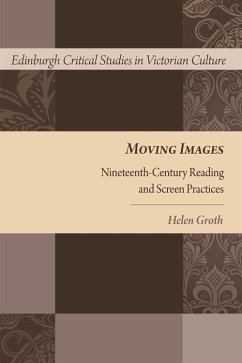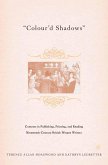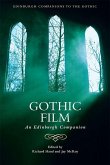'Helen Groth's brilliant study opens new vistas for thinking about literature and moving images. From Byron onwards, Groth brings this world to life in ways that help us understand the complexity of the relationship between words and images for their time and ours.' Jon Mee, University of York 'A carefully researched study of the new visual wonders of the nineteenth century - the kaleidoscope, the magic lantern, the dissolving view, the Thaumatrope, and Phenakistoscope. It shows, with wonderful illumination of its own, how they shaped literary practice and "psychological aesthetics" in the decades before cinema.' James Chandler, University of Chicago Examines the moving image in relation to nineteenth-century literature, theories of mind and visual media This book examines how nineteenth-century media formations paralleled the emergence of a new psychological understanding of the ways in which reading, viewing and dreaming generate moving images in the mind. Helen Groth reads between these parallel histories of mind and media to reveal a dynamic engagement with the moving image that she traces through the print and visual mediation of the work of Byron, Carroll, Dickens, Scott and Thackeray, as well as early film makers such as Robert Paul and Cecil Hepworth. This engagement is both typically nineteenth century in its preoccupation with questions of automatism and volition, spirit and materiality, art and machine, yet also undeniably modern in its articulation of how images move both inside and outside the mind. Helen Groth is an Associate Professor at the University of New South Wales. She is the author of Victorian Photography and Literary Nostalgia and, with Natalya Lusty, Dreams and Modernity: A Cultural History, and the co-editor of Mindful Aesthetics: Literature and the Science of Mind. Cover design by Cathy Sprent [EUP logo] www.euppublishing.com
Hinweis: Dieser Artikel kann nur an eine deutsche Lieferadresse ausgeliefert werden.
Hinweis: Dieser Artikel kann nur an eine deutsche Lieferadresse ausgeliefert werden.








